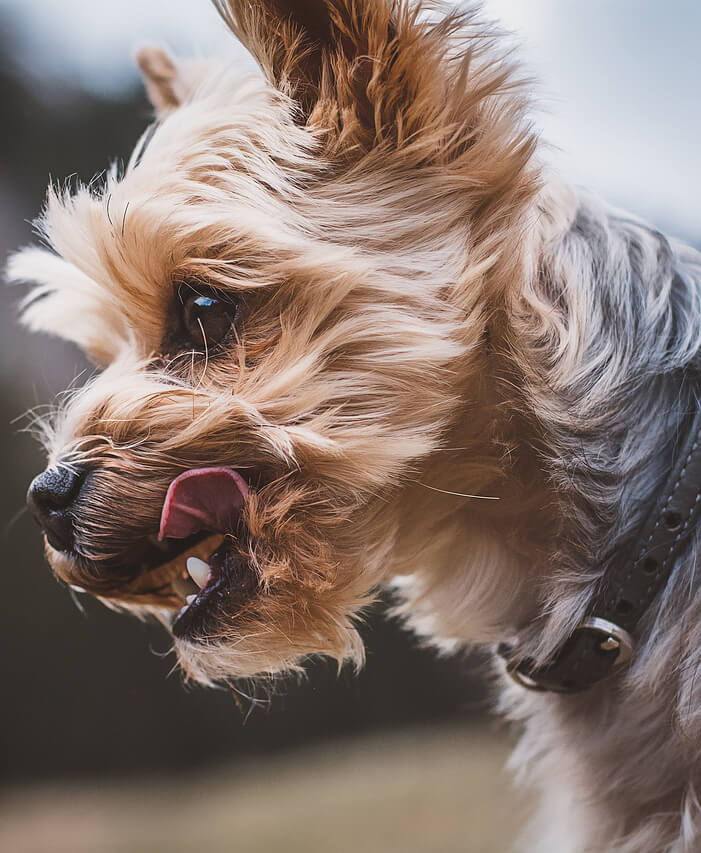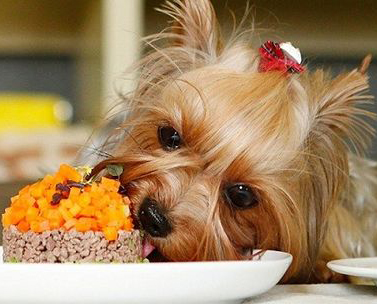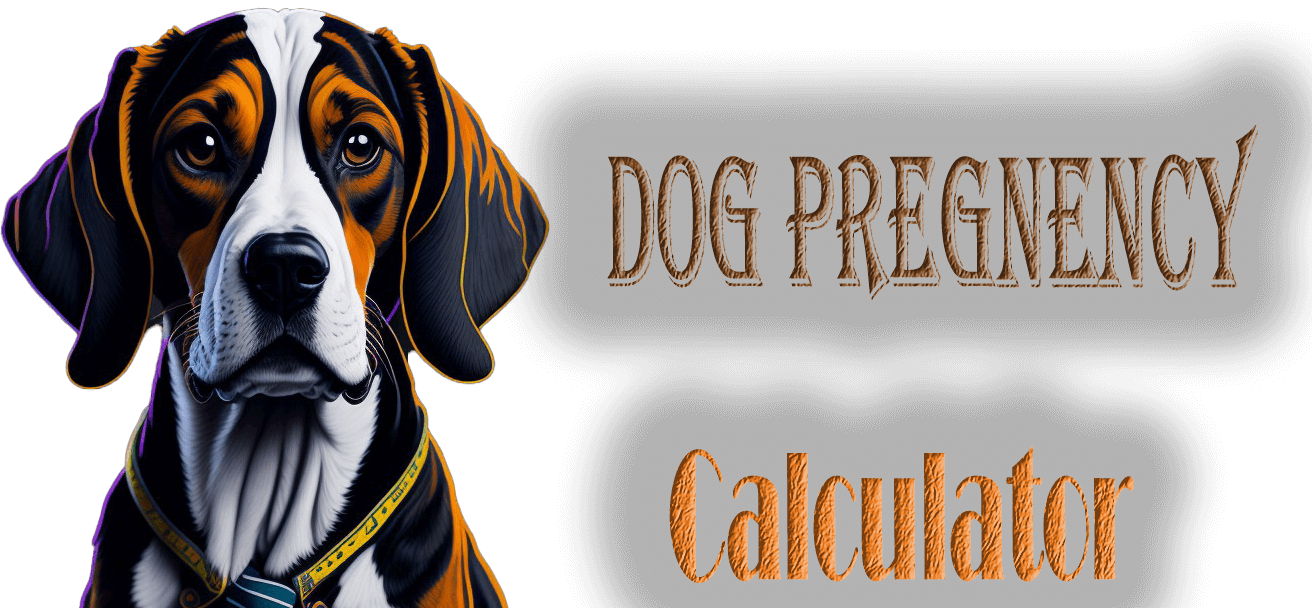The Lovable Yorkshire Terrier Pregnancy: A Popular Breed for Pet Owners
Learn everything you need to know about Yorkshire Terrier pregnancy. Yorkshire Terriers, or “Yorkies” as they are commonly known, are a small breed of dog that have become increasingly popular as pets in recent years. Yorkies typically weigh between 4 and 7 pounds and stand about 6 to 9 inches tall at the shoulder. They have a distinctive long, silky coat that can come in a variety of colors including black and tan, blue and tan, or gold and tan. Despite their small size, Yorkies are known for their big personalities – they are often feisty, courageous, and intelligent.
Table of Contents
ToggleThe best tool to find your Yorkshire Terrier Pregnancy due date.

Yorkshire Terrier Pregnancy Signs
Physical Changes to Look Out For in Yorkies
As a responsible pet owner, it is important to be aware of the physical changes that occur during Yorkshire Terrier pregnancy.A change in appetite is one of the early indicators of pregnancy. Morning sickness can cause some terriers to lose their appetite, while other terriers may become hungry and eat more than usual.
Your dog may get larger, darker nipples, and her belly may start to bulge. During pregnancy, Yorkshire Terriers also go through hormonal changes that may have an impact on their coat.
As your dog gets ready to become a mother, you might notice that her fur is getting thicker and glossier than usual. Furthermore, some pregnant Yorkies have vaginal discharge in the first trimester.
It’s crucial to remember that not every physical change during pregnancy indicates a safe pregnancy. Be sure to speak with a veterinarian if you observe any unsettling signs or have any concerns regarding your Yorkie’s health throughout her pregnancy.
Yorkie Pregnancy Signs Behavioral Changes
Dogs go through behavioral changes during pregnancy, much like people do. Depending on the particular dog and her temperament, these modifications may differ. The tendency to become more affectionate with their owners is one typical behavioral shift.
Yorkies who are expecting could become more needy or demand more attention from their owners. However, some pregnant terriers may become more protective of their living space or possessions as they get ready to become mothers.
When another animal or person approaches too closely, this behavior may take the form of snarling or snapping. Owners of pregnant Yorkshire Terriers should be patient and understanding as they go through these behavioral changes.
Your dog will feel more at ease if you provide him a cozy place and lots of attention during this period. Overall, understanding how to care for their pregnant Yorkshire Terriers can be improved by being aware of both physical and behavioral changes.
Preparing for Yorkshire Terrier Pregnancy
The Importance of Pre-Pregnancy Check-Ups with a Veterinarian
Make an appointment with your Yorkshire Terrier’s veterinarian before starting the pregnancy process. To make sure your dog is healthy and in good condition for pregnancy, your veterinarian will do a comprehensive physical examination. They will look for any underlying illnesses including diabetes, heart disease, or infectious infections that could pose a risk during pregnancy.
Additional testing, such as blood work to check hormone levels or imaging tests like ultrasonography to assess the condition and functionality of the reproductive system, may also be advised by your veterinarian. With the aid of these tests, your veterinarian will be able to advise you on the best ways to support your Yorkie during the pregnancy and will be able to assess whether it is safe for them to become pregnant.
Nutritional Requirements During Yorkshire Terrier Pregnancy
Nutritional support is essential during pregnancy. For the puppies’ healthy growth and development, your Yorkshire Terrier has specific dietary needs that must be satisfied. They need more than typical amounts of protein, fat, vitamins, and minerals.
It is advised that you transition your dog to a premium puppy meal at least four weeks before you plan to breed her. This diet should have a protein composition of 25% to 30% and a fat content of 15% to 20%.
It’s also better to feed modest meals often throughout the day rather than large ones. Additionally, it’s critical to always provide an abundance of clean water because dehydration can negatively impact the health of both the mother and the pups.

Exercise and Activity Recommendations during Yorkie Pregnancy
Your Yorkshire Terrier needs to continue exercising throughout pregnancy, but you shouldn’t overdo it or put too much stress on their health. Moderate exercise that doesn’t put too much stress on their joints, like brief walks or light outdoor playtime, helps them stay in shape.
Avoid high-impact exercises like running or jumping since they could hurt the developing puppies. Avoiding actions that can cause trauma or harm to the abdomen is also crucial.
Depending on how your Yorkie is doing, you might need to modify your workout regimen further as the pregnancy goes on and slow down your activities. Your veterinarian can give you advice on how much exercise is necessary and when to take it easy.
Psychological Preparation for Yorkshire Terrier Pregnancy
Yorkshire Terriers are sensitive canines that yearn for their owners’ love and attention. Due to hormonal changes, Yorkshire Terrier pregnancy can be a difficult time for them, so it’s crucial to make sure they feel connected to and at ease with you at this time. Spend time with them regularly, avoid leaving them alone for extended periods of time, and provide them a lot of safe for pregnant dogs toy and enrichment options.
This satisfies their intrinsic urge for fun while keeping their minds occupied. During this time, be patient and kind to your Yorkie.
Due to hormonal fluctuations, they may go through mood swings or become more irritated than usual. Stress can adversely affect both their health and that of their pups at this time, therefore it is crucial to keep a quiet and caring environment.
Preparing For Yorkshire Terrier Delivery
You should get ready a spot in your house where your dog will give birth before delivery day arrives. The location ought to be peaceful and far from any household pets or kids.
You will require a whelping box, which is a secure container for young puppies and should be lined with newspaper or towels. In order for Yorkie to give birth with ample room to walk about, make sure there is enough space surrounding the box.
The process of Yorkshire Terrier Pregnancy
Gestation Period and Yorkshire Terrier Pregnancy Timeline
Yorkshire Terriers have a gestational period of approximately 63 days, give or take a couple of days. It is important to keep track of the exact date of conception to determine the due date accurately.
Best way to calculate Yorkshire Terroir Pregnancy is to use the Yorkshire Terrier Pregnancy calculator.
To find out the timeline for Yorkshire Terrier Pregnancy Use the Calculator And Select breed as Yorkshire Terrier for the breed list

Common Health Issues During Yorkshire Terrier Pregnancy and How to Manage Them
Certain health problems can affect the well-being of Yorkshire Terrier Pregnancy and the welfare of their offspring. Morning sickness or nausea, which often occurs during the first four weeks of pregnancy, is one prevalent health problem.
Offer small meals frequently throughout the day if your Yorkie vomits or loses appetite, and if necessary, consult your veterinarian for advice on medication.
Hypoglycemia, or low blood sugar, is another problem that frequently affects pregnant Yorkies.
In extreme circumstances, this might result in convulsions, lethargy, weakness, and even miscarriage. Offer small, frequent meals high in protein and carbohydrates, like scrambled eggs or boiled chicken breast, to prevent hypoglycemia during Yorkshire Terrier Pregnancy.
The Miracle of Birthing: An Insight into Yorkshire Terrier Labor and Delivery
Stages of Labor in Yorkshire Terrier Pregnancy
There are three stages to Yorkshire Terrier labor, and each one lasts, on average, 12 to 24 hours.
- The first stage starts around two weeks prior to delivery day when your Yorkie seems restless or uncomfortable. The average duration of this phase is six to twelve hours, but it can last up to twenty-four hours.
- The cervix widens at this time, allowing the puppies to pass. Stronger contractions occur during the second stage as your Yorkie prepares to deliver her puppies.
- For each pup birth, this stage might last anywhere from 30 minutes to an hour. After the birth of each puppy, the third phase denotes the placenta’s delivery; it typically takes under an hour for each placenta to be discharged.

Signs That Labor Is Approaching
Knowing when your Yorkie is about to go into labor can help you prepare adequately. Some signs may indicate that labor is imminent include:
- Decreased appetite
- Restlessness
- Nesting Instincts
- Panting
- Vomiting
About 48 hours before going into labor, a clear discharge will appear from the vagina; this shows that puppies are coming soon!

Yorkshire Terrier Pregnancy Week by Week
Weeks 1-2: During this time, the Yorkshire Terrier’s eggs and sperm come into contact and fertilization takes place. There are no obvious changes at this period, making it challenging to determine whether the dog is pregnant.
Week 3: Embryo development begins at this point as the fertilized eggs migrate down the uterine horns. The dog’s body begins to create the hormones needed to support the pregnancy at this time.
Week 4: The embryos start to embed into the uterine lining at this point and start to develop a placenta. There’s a chance that the dog will start to exhibit minor symptoms like weariness or morning sickness.
Week 5: The embryos are now about the size of a grape and are beginning to form various body parts, including limbs, eyes, and ears. The dog may begin to put on a little weight and have a slightly wider tummy.
Week 6: The dog’s belly obviously grows larger as the organs and bones of the embryos begin to develop quickly. She might start exhibiting more pregnant symptoms, like an increased appetite and nipple growth.
Week 7: The puppies’ fur begins to grow and their sex organs start to show. The dog’s belly is becoming rather big now, and she might start acting like she’s making a nest.
Week 8: The puppies are ready to be born since they are fully developed. The dog may begin to exhibit labor-related behaviors as panting, agitation, and digging. Yorkshire Terriers typically give birth after 63 days of gestation, however this might vary from 58 to 68 days.
Feeding and Caring for Newborn Puppies
Puppies that have just been born are delicate beings who need particular care and consideration. During the first few weeks of life, they only receive nutrition from their mother’s milk. In order for them to receive enough milk, it’s crucial to make sure they are nursing frequently—at least once every two hours.
It’s crucial to keep newborn puppies warm because they can’t yet regulate their body temperatures. Include a heat source that they can cuddle up next to with their siblings, such as a heating pad on low or a hot water bottle wrapped in towels.
Till the seventh day after birth, the newborn puppies should be weighed daily so that you can determine whether each puppy is gaining weight appropriately. Take into consideration the differences in size between each puppy and its littermates when inspecting each one separately.
Additionally, keep an eye out for any symptoms of illness or infection in newborn puppies, such as lethargy or diarrhea, as their immune systems have not yet developed properly, making them vulnerable to disease. In general, taking care of newborn yorkie puppies calls for a lot of patience and attention.
Be ready to adapt and make changes along the route as the puppies’ requirements alter as they develop. Your Yorkshire Terrier puppies will flourish and grow into healthy adult canines with the right care and attention.
Frequently Asked Questions
The average litter size for a Yorkshire Terrier is 3-6 puppies. However, it is possible for them to have as many as 10 puppies.
There are a few risks associated with breeding Yorkshire Terriers, including:
- Dystocia: This is a condition in which the puppies are unable to be delivered vaginally. Dystocia can be life-threatening for both the mother and the puppies.
- Premature birth: Yorkshire Terriers are small dogs, and their puppies are even smaller. Premature birth can be a serious problem for both the puppies and the mother.
- Stillbirth: This is when a puppy dies in the womb. Stillbirth is a rare complication of pregnancy, but it can happen to any breed of dog.
There are also some benefits to breeding Yorkshire Terriers, including:
- The puppies can be sold or given away to loving homes.
- Breeding your Yorkie can help to improve the breed.
- Breeding your Yorkie can be a rewarding experience
Breeding a dog responsibly involves selecting suitable mates, conducting health checks and genetic testing, providing proper nutrition and medical care throughout the pregnancy, monitoring the mother during labor and delivery, and caring for the newborn puppies afterward. It is best to seek out a reputable breeder or work with a veterinarian who specializes in reproductive health if you are interested in breeding your Yorkie.
It is advised that you take your pregnant Yorkshire Terrier as soon as you can after learning of your Yorkshire Terrier pregnancy to see a veterinarian. By doing this, she will be given the appropriate prenatal care throughout her pregnancy. Your dog’s general health will be routinely examined at these visits, and your veterinarian will track your dog’s development through each stage of pregnancy.
Yes, most Yorkshire Terriers are able to give birth naturally, but some may require a cesarean section if they have difficulty giving birth.
You can start socializing your puppies as early as 3-4 weeks of age, but make sure to keep interactions positive and gentle to avoid overstimulation.
Yorkshire Terrier pregnancy complications include:
- Miscarriage: Yorkies are susceptible to miscarriage, especially during the first few weeks of pregnancy. The most common causes of miscarriage include hormonal imbalances, infections, and genetic abnormalities.
- Pyometra: This is a severe bacterial infection that can occur in unspayed female dogs. Pyometra can cause serious complications and even be life-threatening if not treated promptly. Symptoms of Pyometra include lethargy, loss of appetite, and vomiting.
- Pregnancy-induced hypoglycemia: Yorkies are prone to low blood sugar levels, and pregnancy can exacerbate this condition. Hypoglycemia can cause weakness, lethargy, and seizures, and it can be life-threatening if not treated quickly.
- Difficult labor: Small dog breeds like Yorkies are prone to difficult labor, which can result in the need for a Cesarean section. Signs of difficult labor include prolonged contractions, weakness, and lack of progress during the delivery process.
- Fetal abnormalities: Fetal abnormalities can occur in any breed of dog and can result in stillbirth or the need to terminate the pregnancy. Abnormalities can be caused by genetic defects, infections, or exposure to toxins.
